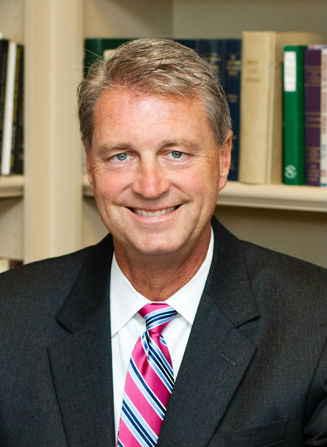Good Medicine for a Church's Health

Although not particularly popular, either in our present secular milieu or in bearing our present ecclesiological amnesia, I continue to believe that having, holding, and requiring a confession is good for us. In short, a confession is good for our health, even if it, at times, requires medicine that might not taste great at first. The alternative treatments often yield chaos, will-worship, self-promoting celebrity cults, confusion, methodolatry, or continual flux.
I say this with 3 caveats: (1) first, if the confession is thoroughly biblical and thus timeless and not provincial; (2) second, if the confession is used rightly as a subordinate standard, not as an ordinate standard; and (3) third, if the confession is used by pastoral and spiritual men to serve unity and clarity.
On the first caveat, no confession deserves any respect if it is not thoroughly biblical. A confes-sion, if a faithful echo of what God already says, can guide us and protect us from the disabilities of an age or locale. Confessions that parrot and lightly amplify the soundings of Scripture endure, while also equipping God’s family with strength and perspective to avoid the ditches of every fad or heresy. Biblical confessions, thankfully, save us from re-inventing every wheel. Confes-sions that stand on the shoulders of prior saintly exegetes are the AP courses that settle certain matters and yield a head start—that is, for those who are humble enough to learn from others.
On the second caveat, a subordinate standard, it should be understood, is exactly what that term implies: both subordinate (always to Scripture) and still a standard. A secondary standard is still a standard, and many fields use secondary standards to assist their practitioners in quality control. A confession is designed for that. It is simultaneously shorthand and proven wisdom; it is orthodoxy and orthopraxy at the same time. Unless one’s lifespan is infinite, when we pray for God to “teach us to number our days that we might apply our hearts to wisdom,” confessions will often help us in the stewardship of time as well as protect us from crippling idiosyncratism. A subordinate standard can aid health.
On the third caveat, the telos of a confession is to serve unity and clarity. Many of us learn the hard way that the most damning laws and standards are those unwritten ones. The Pharisees, ancient and modern, are masters of using the unwritten standards to club the uninitiated into a coma. An explicit, biblical confession, on the other hand, does not subject the believing community to these secret laws; instead, it liberates us from self-standards and also makes the church open to all under the same standards. Thus a solid confession cleanses from disease and bolsters the immune system with a salutary unity.
Below is a short review of how holding to a stated confession is quite biblical and prescriptive.
The earliest Christians publicly agreed (the NT word for “confess” means to say the same words) to fixed doctrine. Although it has become commonplace to hear well-meaning Christians announce that they hold to “No creed but Christ, no book but the Bible,” that is virtually impossible to practice. The truth is that all believers hold to certain doctrinal sets; the only question is which sets are more or less in keeping with the Scriptures. Holding to doctrine is not bad, unless the doctrine itself is unbiblical.
Indeed, we can witness doctrine as a staple of the ancient and early church. That doctrine is not a bad word may be seen when Paul urged a church leader to watch his life and doctrine closely (1 Tim. 4:16). He promised that hearers would be saved if that were done; one certainly would not, therefore, wish to do something adversarial to the salvation of hearers. Later Paul also stipulated that Elders should hold firmly to sound doctrine and be able to refute those who did not (Tit 1:9). Some public recognition of sound doctrine was already presupposed in the church prior to 65 AD. That maturity and ability is also set forth as a pre-requisite for Elders (1 Tim. 3:9). Officers of Christ’s church cannot fulfill this mandate if doctrine is not fixed, set, and recognized.
As the New Testament unfolds, it is not one faith among many, or “a faith,” or whatever people sincerely hold to that is defended. Instead, it is “the faith.” A cursory review of the following passages makes it clear that “the faith” was a set of revealed truth:
- 1 Timothy 1:19;
- 1 Timothy 4:1;
- 1 Timothy 4:6;
- 1 Timothy 4:16;
- Jude 3 speaks of “the faith, which was handed down once and for all to all the saints.”
These verses make it clear that “the faith” is not evolving, changing, or in need of constant revision. God, in his mercy, has not founded the church on an imperfect platform that needs serial upgrades. One of our strengths to people looking for lasting institutions is to be able to point them to a church that has identified doctrine, and that doctrine will not change between grandparents and their great-grandchildren. Few churches can offer things that last. With Isaiah we ask, “why spend money . . . and your labor on what does not satisfy?” (Is. 56:2)
Doctrine is a strength, as long as it is biblical. Furthermore, both testaments evidence the use of creedal summaries. The well-known Shema (Dt. 6:4-5) was used as a repetitive, summary of belief. Israel was to rehearse the nature of God as one and worthy of all our focus. Jesus himself asked the disciples to make confessions, and in one instance (Mt. 16) Peter responded with uncommon perception. There Peter confessed that Christ was the Son of God, and Jesus blessed him for that correct confession. Romans 10:9 commends confessing with our mouths, after we have believed in our hearts, that Jesus Christ is Lord. Later, 1 Corinthians 12:3 exhibits what could be the briefest NT confessional summary: “Jesus is Lord.” That phrase is alluded to later (Phil. 2:5-11), referring to every knee bowing and every tongue confessing that “Jesus Christ is Lord.” Apparently, fixed articles of belief were recognized and employed as standards of truth by the middle of the first century. Further, an especially robust summary of Christian truth is contained in 1 Timothy 3:16. That short, creedal summary rehearses the life of Christ and his subsequent resurrection and ascension. With short, rhythmic clauses, much like the later Apostles’ Creed, that verse summarizes the life and significance of Christ for all time.
Far from being forbidden, holding to fixed confessions is little more than following the NT pat-tern. Rather than contradicting, a confession is actually a Physician’s Assistant to sola scriptura.
 The Rev. David W. Hall (PhD, Whitefield Theological Seminary) is married to Ann, and they are parents of three grown children. He has served as the Senior Pastor of Midway Presbyterian Church (PCA) since 2003. After completion of his undergraduate studies, Pastor Hall studied at Swiss L’Abri and then enrolled at Covenant Theological Seminary in St. Louis, Missouri, graduating in 1980. In addition to pastoring, David Hall is the author or editor of over 20 books and numerous essays.
The Rev. David W. Hall (PhD, Whitefield Theological Seminary) is married to Ann, and they are parents of three grown children. He has served as the Senior Pastor of Midway Presbyterian Church (PCA) since 2003. After completion of his undergraduate studies, Pastor Hall studied at Swiss L’Abri and then enrolled at Covenant Theological Seminary in St. Louis, Missouri, graduating in 1980. In addition to pastoring, David Hall is the author or editor of over 20 books and numerous essays.





